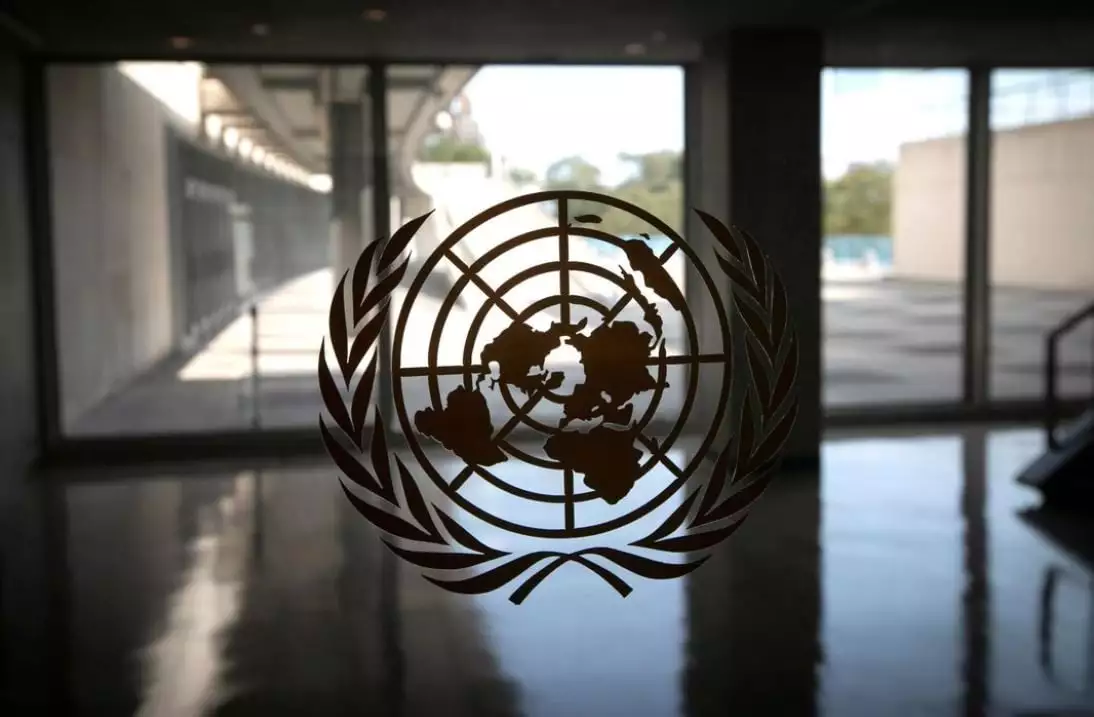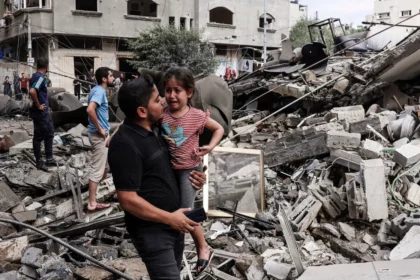On Friday, the UN Security Council meets in Gaza under acute pressure from Secretary-General Antonio Guterres and will vote on urging an immediate ceasefire after weeks of ruinous war.
Even though the civilian death toll in the Palestinian territory is mounting and living conditions are described as catastrophic amid Israel’s bombardment, the outcome of the session is up in the air.
In a letter to the council on Wednesday, Guterres took the extraordinary step of invoking the UN charter’s Article 99, which states that the secretary-general may bring to the attention of the council “any matter which in his opinion may threaten the maintenance of international peace and security.”
No one in his job had done this in decades.
Guterres wrote: “Amid constant bombardment by the Israel Defense Forces, and without shelter or the essentials to survive, I expect public order to completely break down soon due to the desperate conditions, rendering even limited humanitarian assistance impossible.”
He called for a “humanitarian ceasefire” to prevent “a catastrophe with potentially irreversible implications for Palestinians” and the entire Middle East.
UN spokesman Stephane Dujarric expressed hope that the council will heed Guterres’ urgent appeal.
Dujarric said that since Wednesday the UN chief has spoken with US Secretary of State Antony Blinken and British Foreign Secretary David Cameron and their counterparts from several other countries.
Israel has been pressing for the destruction of Hamas over the October 7 attack, when militants broke through Gaza’s border, killing around 1,200 people and seizing hostages, 138 of whom remain captive, according to Israeli figures.
The bloodiest-ever war between Israel and Hamas is now in its third month, with the death toll in Gaza soaring above 17,000, mostly women and children, according to the Hamas-run health ministry.
Israel’s relentless bombardment and shelling have reduced much of Gaza to rubble.
Israel is severely restricting the entry of food, water, fuel, and medicine, and 1.8 million people (80 percent of Gaza’s population) have been forced to leave home to escape Israeli attacks.
After Guterres sent his urgent letter, the United Arab Emirates prepared a draft resolution that will be put to a vote on Friday, said the delegation from Ecuador, which chairs the council this month and thus decides on scheduling issues.
The latest version of this document seen Thursday by AFP calls the humanitarian situation in Gaza “catastrophic” and “demands an immediate humanitarian ceasefire.”
The short text also calls for the protection of civilians, the immediate and unconditional release of all the hostages Hamas is still holding, and humanitarian access to the Gaza Strip.
But the outcome of a vote is not clear — four earlier drafts presented since the war broke out were rejected by the Security Council.
The council finally managed to speak out on the war in mid-November as it approved a resolution calling for “humanitarian pauses and corridors” in Gaza — not a ceasefire.
The United States, Israel’s most powerful ally, which vetoed one of the earlier draft resolutions and rejected the idea of a ceasefire, has said a new resolution from the council at this stage would not be “useful.”
“Our position hasn’t changed,” said the deputy US ambassador, Robert Wood.
“We again think that the best thing that we can do, all of us, for the situation on the ground, is to let the quiet behind-the-scene diplomacy that is going continue,” Wood said.
Agnes Callamard, secretary general of Amnesty International, said “the US and all other members of the UN Security Council have a clear obligation under international law to prevent atrocities.”
“There can be no justification for continuing to block meaningful action by the UN Security Council to stop massive civilian bloodshed, the complete collapse of the humanitarian system, and even worse horrors resulting from the breakdown of public order and massive displacement,” she added.
The Palestinian ambassador to the UN, Riyad Mansour, said “we sincerely hope that the Security Council will adopt that resolution and will listen to brave, courageous, principled position of the secretary-general.”
Israeli Foreign Minister Eli Cohen on Wednesday said Guterres’ tenure was “a danger to world peace” after he invoked Article 99.




